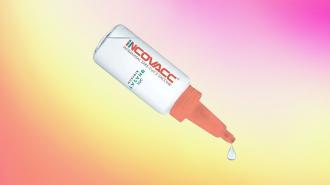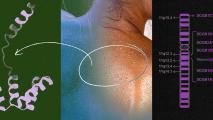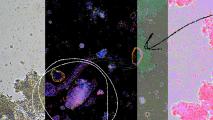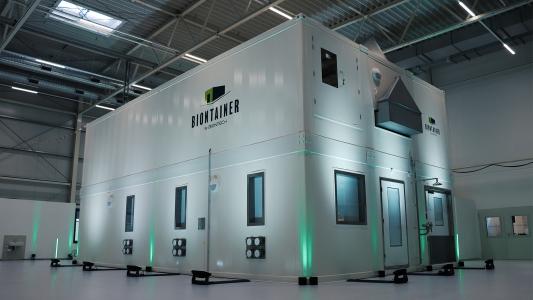While COVID-19 vaccines delivered via injections can prevent severe illness, India has begun deploying a nasal vaccine for COVID-19 that may be able to prevent infections altogether — potentially slowing the coronavirus’ spread and helping bring the pandemic to an end.
The challenge: When COVID-19 vaccines are delivered via an injection, they train the immune system as a whole to recognize the coronavirus — it will then be able to attack the virus if it shows up in the body later.
Our approved vaccines are effective at preventing severe illness and death, but fully vaccinated and boosted people can and do still catch COVID-19. Besides the misery of being sick, they can then spread the virus to others, giving the virus another chance to cause severe illness or mutate into new variants.
A nasal vaccine for COVID-19 might appeal to people with an aversion to needles.
The idea: Since the coronavirus tends to enter the body via the respiratory tract, many researchers have suggested administering vaccines in the nose rather than intramuscularly — the idea is that this might prevent infections altogether, rather than just limiting their severity.
A nasal vaccine for COVID-19 might also appeal to people who’ve avoided getting shots or boosters due to an aversion to needles, potentially increasing overall vaccination rates.
The nasal vaccine: In August 2020, researchers at the Washington University School of Medicine in St Louis (WUSTL) announced that they’d developed a vaccine for COVID-19 that prevented infection in mice when administered nasally but not intramuscularly.
India-based biotech firm Bharat Biotech and St. Louis-based biotech startup Precision Virologics then licensed the nasal vaccine, and after further development and human trials, India approved its use as a two-dose primary vaccine in September 2022 and as a booster in November 2022.
That made it the first nasal vaccine in the world to be approved for both uses.
“The rollout of iNCOVACC … proves that India can innovate for itself and the world.”
Krishna Ella
On January 26, Bharat’s nasal vaccine for COVID-19, now known as iNCOVACC, officially went on sale in India at a cost of about $4 at government facilities and $9.80 per dose at private ones (to put that into context, that’s about a day or two’s wages on the average salary).
“With the rollout of iNCOVACC today, we have achieved our goal of establishing a novel vaccine delivery platform for intranasal delivery,” said Krishna Ella, founder of Bharat Biotech. “It proves that India can innovate for itself and the world.”
The cold water: Bharat claims the nasal vaccine proved safe, tolerable, and capable of producing an immune response during phase 3 trials in which about 3,100 people received it as a primary vaccine and 875 as a booster following intramuscular vaccines.
The company submitted data from those trials to regulators in India, but it has yet to publish anything, so we still don’t actually know how effective the vaccine is at preventing infection in people.
“Nothing has been published; no data has been made available.”
Mike Diamond
Aside from India, Iran, Russia, and China have all authorized nasal vaccines for COVID-19 as primary doses or boosters — and we don’t have data on the ability of any of those vaccines to prevent infection, either.
“Nothing has been published; no data has been made available,” Mike Diamond, who co-invented the WUSTL vaccine licensed to Bharat, told the Atlantic in December 2022.
Looking ahead: About 100 nasal vaccines for COVID-19 are still in development, but the lack of proof that the approach can prevent infection — combined with the fact that we already have shots that can keep people out of the hospital if they do get infected — has stifled progress.
Now that nasal vaccines are being deployed, it hopefully won’t be long before we start seeing for ourselves how well they prevent infection — and if the results are promising, it could give a much needed boost to the nasal vaccines still under development here in the US.
We’d love to hear from you! If you have a comment about this article or if you have a tip for a future Freethink story, please email us at [email protected].






